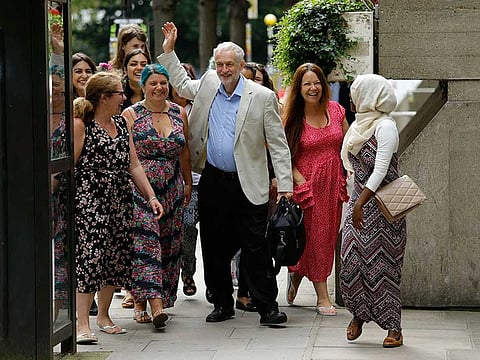Britain’s global place is at stake — are Britons going to speak up?
The Brexiteers insisted there would be no retreat from the world stage — now Britons need to see the proof

These are troubled times for international cooperation. For the past 70 years, the rules-based global order has delivered stability and prosperity in many parts of the world, from the promotion of dialogue to multilateral agreements on trade and collective security.
Now, this period of relative global peace is fraying. An increasing number of states believe the international system will not deliver for them. Strained to breaking point, it will not endure unless governments actively work to improve it.
Crises characterised by atrocities, disasters and terrorism are multiplying. Displacement stands at an all-time high, while the humanitarian system is severely overstretched. At the sharpest end of the scale, Syria is the most obvious casualty. But throughout the world there are examples of conflicts where the international response has been inadequate. Even in the fundamental area of steadying the world economy, cooperation has been sluggish.
Many governments have responded to pressing global challenges by turning inwards. Unable or unwilling to deal with the domestic fallout from globalisation, they have sought refuge in national, sometimes overtly nationalist, agendas. This has led to sabre-rattling among big powers.
The United Kingdom has not been immune to this. Over the past decade, there has been a worrying reluctance in Britain to invest in the continuing health of the international system, along with a narrowing of national interests and identity.
While the UK’s decision to leave the European Union (EU) has complex and long-standing roots, it is undeniably part of this trend. And whether we like it or not, it has signalled to others a retreat from the world stage. Britain’s partners are starting to wonder: Will a post-Brexit UK be perfidious or simply isolationist?
Reviving the collective approach has never been more important for UK interests, because the line between national and global challenges no longer exists.
Whether tackling climate change or economic stagnation, Britain needs effective global solutions. And without strong leadership from the UK, this is less likely to happen.
Major aid donor
Britain’s fondness for the image of “punching above our weight” in international affairs disguises its potential to be an important global player. It has much to offer in supporting global action, through its place at the United Nations, its role as a major aid donor, and its capable and respected diplomats and armed forces.
While emerging players are, rightly, seeking a greater global role, there are still few states that can match the UK’s reach.
In the wake of Brexit, Britain must be doubly determined to make this count. In practice, this means investing in its international system, from ensuring that a strong, principled and effective UN secretary-general is appointed later this year, to providing humanitarian and peacekeeping support, including a more active engagement in diplomatic efforts in Syria, where Britain has been a bit-part player for too long.
Concrete commitments at September’s defence ministerial on peace operations and at the UN summit on refugees and migrants would send a powerful signal. So too would British initiatives to galvanise action at the G8 and G20, which would go a long way to provide economic reassurance as growth in the EU and China remains lethargic.
And it means continuing Britain’s cooperation with the EU, on issues such as security and displacement, and, within the UN, on climate change, atrocity prevention and international development.
Those who led the ‘Leave’ campaign insisted that Brexit would not mean a retreat from the world. Now is the time to prove it. There is virtually no area of UK national interest that does not require more effective international cooperation. If Britain does not step up to the plate, all Britons will suffer.
— Guardian News & Media Ltd
Stewart Wood (Lord Wood of Anfield) is shadow cabinet minister without portfolio and an adviser to Ed Miliband in the leader’s office. Jeremy Greenstock, a former British ambassador to the Unitd Nations, is director of the Ditchley Foundation.
Sign up for the Daily Briefing
Get the latest news and updates straight to your inbox


